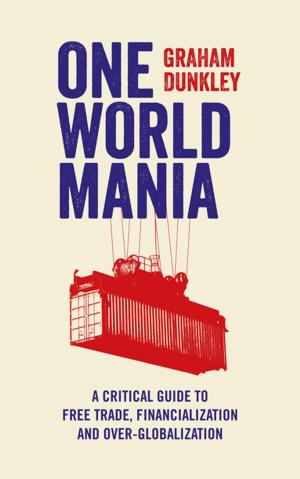Making Poverty
A History
Business & Finance, Economics, Economic Development, Nonfiction, Reference & Language, Reference| Author: | Thomas Lines | ISBN: | 9781848137301 |
| Publisher: | Zed Books | Publication: | April 4, 2013 |
| Imprint: | Zed Books | Language: | English |
| Author: | Thomas Lines |
| ISBN: | 9781848137301 |
| Publisher: | Zed Books |
| Publication: | April 4, 2013 |
| Imprint: | Zed Books |
| Language: | English |
In this clear and intelligent book, Thomas Lines examines the role that global policies have played in creating a crisis of rural poverty. He explains the mechanisms of markets and supply chains, charting their impact on agricultural trade in the world's poorest countries. A desperate situation is emerging which could soon leave little place for hundreds of millions of smallholders across the world, as the global supply chains of giant food corporations and supermarkets swallow them up. Poor countries have become newly vulnerable to price changes for crops like rice and wheat, and the situation is set to deteriorate further if global policies do not change. The author argues that debates about world trade negotiations have only highlighted part of the problem: we must turn our attention to wider economic policies, the workings of the markets themselves and the division of power along the supply chains, to establish a practical set of solutions. Combining analytical rigour with a clearly accessible examination of the key factors, the author deftly points to the forms that these solutions could take.
In this clear and intelligent book, Thomas Lines examines the role that global policies have played in creating a crisis of rural poverty. He explains the mechanisms of markets and supply chains, charting their impact on agricultural trade in the world's poorest countries. A desperate situation is emerging which could soon leave little place for hundreds of millions of smallholders across the world, as the global supply chains of giant food corporations and supermarkets swallow them up. Poor countries have become newly vulnerable to price changes for crops like rice and wheat, and the situation is set to deteriorate further if global policies do not change. The author argues that debates about world trade negotiations have only highlighted part of the problem: we must turn our attention to wider economic policies, the workings of the markets themselves and the division of power along the supply chains, to establish a practical set of solutions. Combining analytical rigour with a clearly accessible examination of the key factors, the author deftly points to the forms that these solutions could take.















